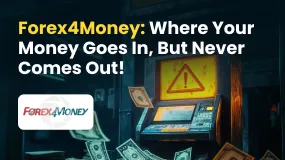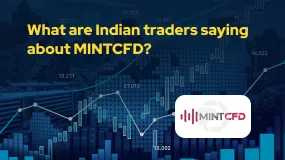简体中文
繁體中文
English
Pусский
日本語
ภาษาไทย
Tiếng Việt
Bahasa Indonesia
Español
हिन्दी
Filippiiniläinen
Français
Deutsch
Português
Türkçe
한국어
العربية
Think Scams Won’t Happen to You? That’s Exactly What Scammers Count On
Abstract:We live in a world where information is everywhere. People are more digitally literate than ever before. Financial education is just a few clicks away. And yet, investment scams are not going away but they’re getting worse. It’s tempting to think that only the gullible fall for these tricks. But that’s far from the truth. Why? Because investment scams don’t target your knowledge. They target your emotions.

In todays digital world, financial knowledge is easier to access than ever before. People are more connected, more informed, and more digitally literate. Still, investment scams continue to grow. In fact, they are not just surviving, but they are thriving more than ever.
It is easy to assume that only the uneducated or careless fall for scams. But the truth is more uncomfortable. Professionals, academics, and even finance experts have all been caught out. The reason is simple. These scams dont target how much you know but how you feel. The underlying logic lies not in a lack of intelligence, but in the intricate architecture of human psychology.
At the heart of every scam is a carefully constructed emotional narrative. It might be urgency (“Act now or miss out”), exclusivity (“Only a few elite investors are being offered this”), or fear of missing out (FOMO). These psychological levers bypass logic and tap directly into emotion. In moments of stress, excitement, or desire, the rational brain takes a back seat. And scammers know this.

Scams also use trust to lower defences. You might hear about an opportunity from a friend, a colleague, or someone in your online network. If the person seems credible, the offer feels safe. This is why scams that target specific groups such as professionals, retirees, religious communities, or social clubs are often the most effective.
Another factor is the pace of the digital world. People are used to making quick decisions. In financial markets, speed often feels like an advantage. Scammers use this to push people into acting without thinking. When time feels short, there is less space for careful thought.
Many victims are smart, educated, and experienced. But intelligence does not protect against emotional manipulation. This is not a failure of knowledge. It is a reminder that human behaviour plays a bigger role than we like to admit.
The key to protection is not just knowing how scams work. It is about understanding how we respond under pressure. Learning to pause, reflect, and ask questions is more important than ever. Emotional awareness is just as valuable as financial knowledge.
In the end, the most dangerous scams are not the ones that seem complicated. They are the ones that feel familiar, safe, and rewarding. The ones that understand how to speak directly to our hopes and fears.
Education remains critical, but not just the kind that explains what a Ponzi scheme is. We need a broader emotional literacy as it helps people recognise manipulative patterns, regulate impulsive responses, and ask critical questions even when an offer seems golden.

Disclaimer:
The views in this article only represent the author's personal views, and do not constitute investment advice on this platform. This platform does not guarantee the accuracy, completeness and timeliness of the information in the article, and will not be liable for any loss caused by the use of or reliance on the information in the article.
Read more

AssetsFX Scam Alert: 5 Troubling Signs
Forex trading has become a critical game now because of advancements in technology. Due to this Unfortunately, scam brokers have also entered in the Forex market. Therefore, you need to stay alert. This article aims to warn all traders and investors. Read carefully and stay aware.

Forex4Money: Where Your Money Goes In, But Never Comes Out!
Discover how Forex4Money traps investors with fake profit promises and blocked withdrawals. Read real complaints and protect yourself from this unregulated forex scam.

What are Indian Traders saying about MINTCFD?
MINTCFD is an India-based broker. It's important to note that independent watchdogs have issued scam alerts against the broker. They label MintCFD as risky and possibly fraudulent. In this Article, we will tell you the red flags of MINTCFD to protect your money

Scam Alert: FCA Issued Warning! Check the List of Unauthorized Brokers Below!
Attention Traders! Never ignore a warning from a trusted authority like the UK’s FCA. If you do, you could risk losing your money. Check the list below of Scam forex brokers to protect yourself.
WikiFX Broker
Latest News
Interactive Brokers Expands Forecast Contracts to Europe
CNBC's Inside India newsletter: Why an India-U.K. trade deal does not make U.S.-India agreement any easier
Fraud Alert: 5 Issues You Might Face with Binomo
OpenAI spearheads one of Europe's biggest data centers with 100,000 Nvidia chips
Silver in Correction Mode: Navigating the Precious Metal’s Pullback
Webull Pay Reviews 2025: Details Compared
Doctor Trapped by 520% Profit Promise, Loses RM8.7 Million
CVS shares pop on earnings beat and outlook, as retail pharmacy and insurance units improve
Robinhood Gains 2.3M New Accounts, Platform Assets Close to $280B
Amazon earnings primer: Why AI and tariffs are key to the second quarter
Currency Calculator


